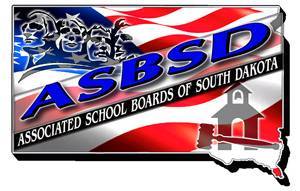House Education moved on four bills introduced by the Department of Education on Friday.
House Bills 1030, 1031, 1032 and 1033 were all passed by the committee and head to the House floor.
In a 13-2 vote, HB 1030 advanced past the committee. The bill calls for the evaluation data of a teacher, administrator or other school employee be confidential.
Secretary of Education Melody Schopp said the bill is related to the new evaluation system, which is a part of the state’s waiver to the U.S. DOE excusing South Dakota from No Child Left Behind requirements, that’s being implemented in school districts.
“(The evaluation) informs administrators, as well as teachers, how they can improve over time,” Schopp said. “If we want the evaluation tool to be used for the purposes of helping teachers and administrators grow, we want to make sure that information is protected.”
Schopp noted that because the evaluation focuses on teacher and administrator growth it may contain student learning objective targets that have the potential to identify students.
“In order for these evaluations to be constructive…it must remain private,” Rep. Timothy Johns said in support of the bill.
Rep. Elizabeth May questioned whether teacher and administrator accountability was to the Department of Education or the parents and how parents played a role in ensuring their children were receiving quality instruction.
“We have that (accountability) through our school boards,” Rep. Julie Bartling said about parents’ role in in teacher accountability.
ASBSD is monitoring the bill.
An amended version of HB 1033, which gives preference to the open enrollment application of siblings of a student currently in a district, passed 15-0. S.D. Department of Education Attorney Bobbi Rank said the bill addresses what they believed to be a conflict in state law.
The amendment to the bill requires a sibling be currently enrolled in the district in order for the brother or sister making the open enrollment application to receive preference when open enrollment applications are reviewed.
“I feel it’s important for them (siblings) to stay in the same district as their siblings,” Rep. Bartling said in favor of the bill.
ASBSD is monitoring the bill.
HB 1031, which revises provisions related to the definition of and the diagnosing of autism and the definition of a level five disability for state aid purposes, and HB 1032, which Revises provisions regarding children placed in residential treatment centers or intensive residential treatment centers, both passed unanimously and were voted to be placed on the House’s consent calendar.
ASBSD is monitoring the bills.
For more updates from committee hearings and legislative session, bookmark the ASBSD Blog, and visit our Bill Tracker page to see ASBSD positions on bills.
